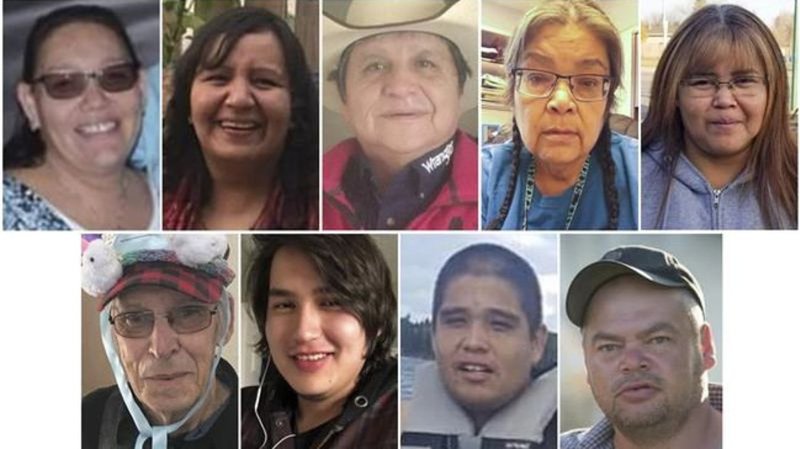
‘Like TNT’: Experts say Saskatchewan attacks underscore need for justice support
A deadly stabbing rampage over the Labour Day weekend in rural Saskatchewan underscores a critical lack of social supports in Canada’s justice system, experts say.
RCMP have named Myles Sanderson, 32, as a suspect in Sunday’s attacks on the James Smith Cree Nation and nearby village of Weldon, northeast of Saskatoon, that left 10 people dead and 18 injured. His younger brother Damien Sanderson, who had also been named a suspect, was also found dead near one of the crime scenes Monday from wounds police said were not self-inflicted.
Myles Sanderson remained at large on Wednesday.
Darryl Davies, a criminology expert at Carleton University, said risk factors for violent crime are well understood in his field and Sanderson’s profile, as described in a February decision from the Parole Board of Canada, should have given off more warning signs.
